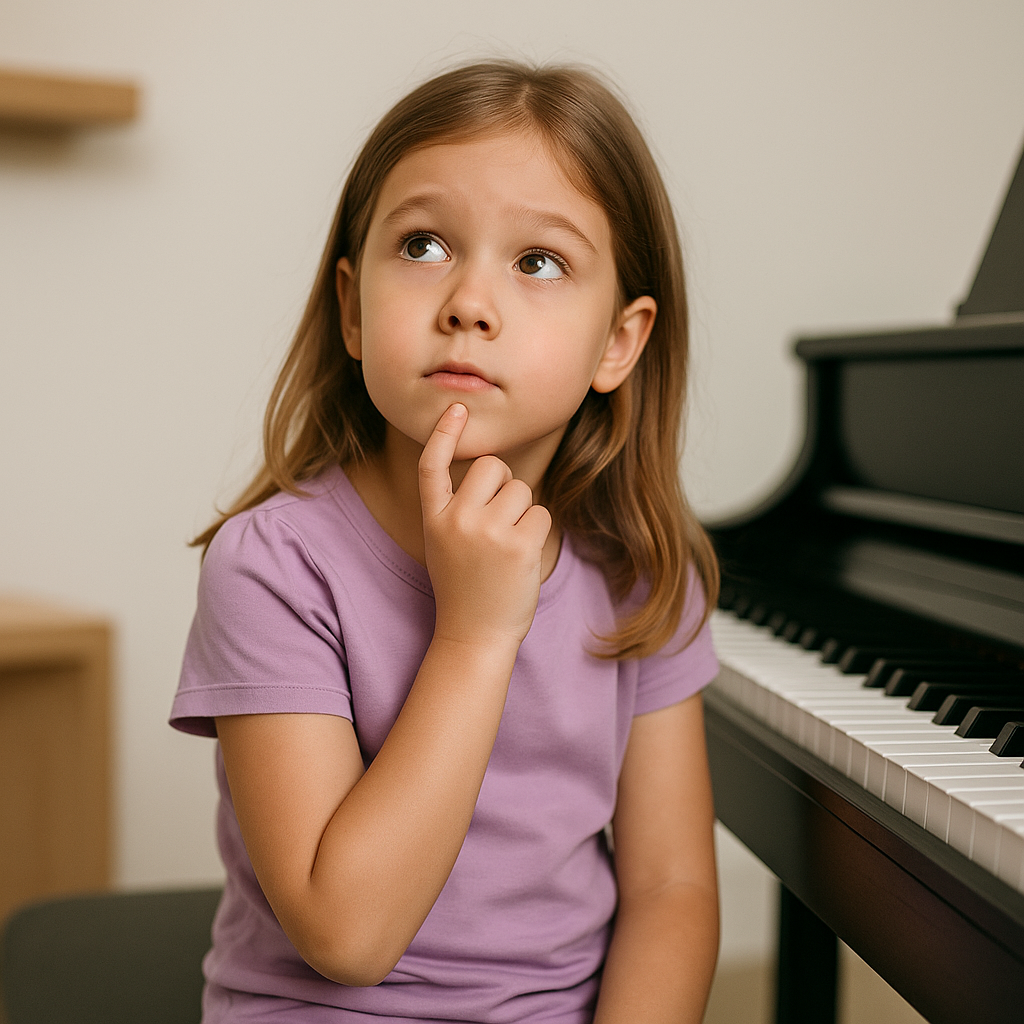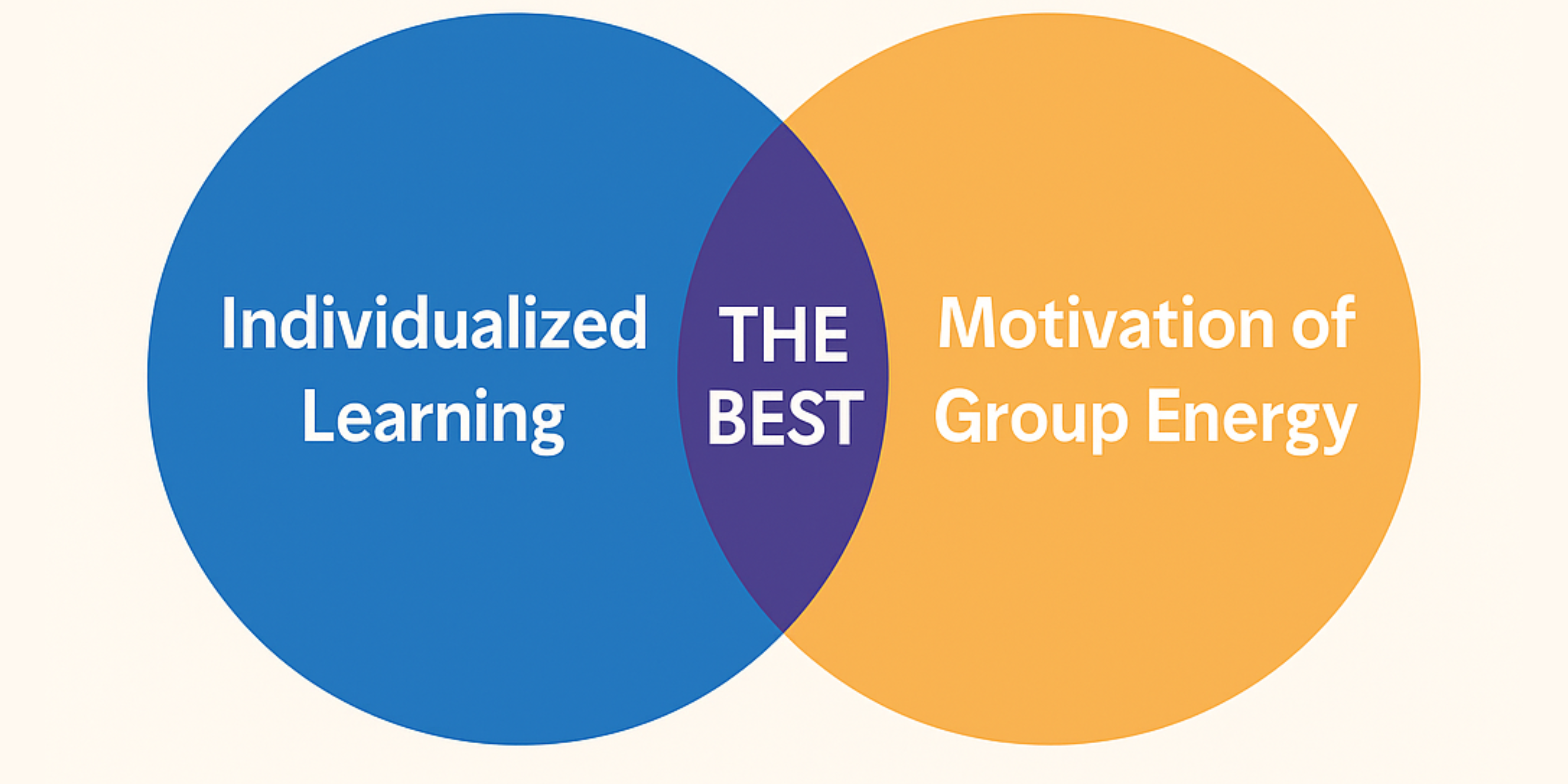Group Piano Classes vs Private Lessons: Are We Thinking About This Backwards?

When your child starts school, what’s the first thing you do?
You enroll them in a class—with a teacher, a schedule, and a group of peers. You probably don’t even consider hiring a private tutor… unless they start struggling with the material.
Private tutoring is usually reserved for students who need extra support. It’s not where most kids begin—it’s what we turn to if something’s not clicking.
So why is it that in the world of music—especially piano—our instincts flip?
Many families go straight to private lessons, assuming that one-on-one instruction is the most effective way to learn. And when they hear “group class,” they assume it’s a lesser option: more social, maybe more affordable, but not as serious.
But what if we’ve been thinking about this backwards?
Rethinking the Default

What if we’ve just gotten the default wrong?
In most subjects—reading, science, history—we trust well-run classes led by experienced teachers. The classroom is where students develop core skills, build confidence, and learn how to learn. Tutors come in later, and only if needed—not from the beginning.
What if starting with a piano class is the smarter, more modern way to build musical skills, just like we do in every other subject?
So before you assume private lessons are the only serious option, take a closer look at today’s group piano classes.
Group Learning Doesn’t Mean Getting Lost in the Crowd
One of the biggest hesitations parents have about group piano is:
“Will my child get the individual attention they need?”
That’s a fair concern. But just like in a great school classroom—where teachers support each child’s progress while guiding a group—an experienced piano teacher knows how to differentiate instruction in a class setting.
In fact, in a well-run piano class, individual attention doesn’t disappear… it’s embedded into the design.
Students benefit from:
- Personal feedback in real time
- Rotating teacher support while students work independently
- A clear, structured path forward
- Small class sizes that allow the teacher to truly know each student
- Technology tools that let each child move at their own pace
They’re not just sitting in a circle playing the same thing together. They’re working on skills that fit where they are, while staying motivated by the energy of the group.
“They’re working on skills that fit where they are, while staying motivated by the energy of the group.”

The Best of Both Worlds
In reality, a well-run piano class offers the best of both worlds:
Individualized learning and the motivation of a group setting.
Research shows that students often thrive when they’re surrounded by peers. Group learning creates momentum, accountability, and a shared sense of progress. Kids love being part of a team. They stay engaged. They celebrate each other’s growth—and their own.
And because they’re not waiting for the teacher’s full attention to move forward, they develop confidence and independence, two essential traits in musical growth.
That’s the kind of learning environment we believe in at Piano Marvel Academy. It’s effective, engaging, and built for long-term success—not just short-term performance.

Final Thought
We’ve been trained to assume that private piano lessons are the “serious” route, and group classes are second-best.
But the more we understand about how kids actually learn, the more that assumption falls apart.
When done right, piano classes aren’t just “good enough”—they’re often better.
So before you assume private lessons are the only path, take a moment to ask:
Would I hire a private tutor the moment my child started math class?
Probably not.
And when it comes to piano, you might just find that a great class experience is exactly what your child needs.

About the Author
Joshua Harris, a TEA-certified, background-checked, and TIA-Designated Exemplary Teacher, was hand-picked by Piano Marvel to establish the first Piano Marvel Academy in Texas. With 18 years of experience in music education—including 10 years as a class piano teacher at the award-winning Talkington School for Young Women Leaders in Lubbock ISD, which is still using his innovative system to drive the success of their piano program. His approach fosters a mutually respectful and fun environment, focusing on helping each student achieve their personal best every day.